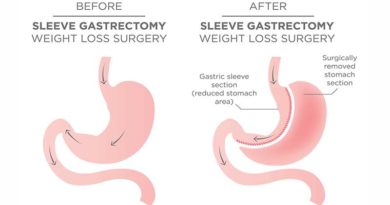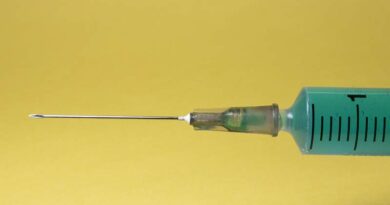Statins with your burger? Better add a pregnancy test too
This story came out on 12 August 2010. I follow BBC Health news on Twitter and they announced:
“Fast food outlets should consider handing out cholesterol-lowering drugs to combat the effects of fatty food, link here
The article opens with: “Fast food outlets should consider handing out cholesterol-lowering drugs to combat the effects of fatty food, say UK researchers. Taking a statin pill every day would offset the harm caused by a daily cheeseburger and milkshake, the Imperial College London team said. It would only cost 5p a customer – similar to a sachet of ketchup.”
Dr Darrel Francis, one of the team of researchers, was quoted as saying: “Importantly, even partial adherence to statin therapy conveys a mortality benefit, suggesting that statins do not need to be taken daily to have some protective effect”.
I checked the source of these incredulous comments (we’ll cover why below). The researchers were Emily A. Ferenczi, Perviz Asaria, Alun D. Hughes, Nishi Chaturvedi MDa and Darrel P. Francis. Their article “Can a Statin Neutralize the Cardiovascular Risk of Unhealthy Dietary Choices?” was published in the American Journal of Cardiology August 2010. You can read the summary here.
Invariably, I go back to the original medical journal article and find that the media have sensationalised a serious piece of research, taken one statement out of context and blown it out of proportion. Not in this case. The researchers managed to do that in their original summary – here’s an extract:
“The risk reduction associated with the daily consumption of most statins, with the exception of pravastatin, is more powerful than the risk increase caused by the daily extra fat intake associated with a 7-oz hamburger (Quarter Pounder®) with cheese and a small milkshake. In conclusion, statin therapy can neutralize the cardiovascular risk caused by harmful diet choices… Routine accessibility of statins in establishments providing unhealthy food might be a rational modern means to offset the cardiovascular risk. Fast food outlets already offer free condiments to supplement meals. A free statin-containing accompaniment would offer cardiovascular benefits, opposite to the effects of equally available salt, sugar, and high-fat condiments. Although no substitute for systematic lifestyle improvements, including healthy diet, regular exercise, weight loss, and smoking cessation, complimentary statin packets would add, at little cost, 1 positive choice to a panoply of negative ones.”
The only declaration of interest for the article was “Dr. Francis is supported by grant British Heart Foundation, London, United Kingdom.” (Those are the exact words – there may be an ‘a’ and a ‘from the’ missing). Professor Peter Weissberg, medical director at the British Heart Foundation is also quoted in the article. It would be fair to say that Weissberg is quite a fan of statins – Dr Michael Eades does a great blog here showing how Weissberg was defending statins back in February 2007. Eades says “The British Heart Foundation is also funded by, among others, companies that make statins.” I did a quick check on the BHF site this morning and found nothing clearly declared. A separate search on Pfizer (makers of Lipitor) and the BHF reveals a funding relationship – small to Pfizer but useful to the BHF.
There are almost too many levels to go into as to why this article is both horrific and irresponsible. I am struggling to recall a more disgraceful recommendation to come from people supposedly interested in our health. I’ll stick to four:
1) Cholesterol is one of the most vital substances in the human body. We literally die without it. The sensible (and non-conflicted) people working in the field of cholesterol understand how statins actually work. The body makes cholesterol (it is too vital a substance for the body to rely on you to have to consume or get from another source in any way). Statins stop the body making cholesterol. You may think that this is how they impact on heart disease (the evidence for impact is also conflicted and not compelling despite this). The more sensible view is that statin drugs work as an anti-inflammatory agent in some way and the cholesterol lowering is a very unfortunate side effect. The key reason for it being so unfortunate is that statins stop the body’s own working ‘up-stream’ of the production of CoQ10, which has been called the energy spark plug for the body, and this explains side effects from tiredness, being less able to be active and as extreme as irreversible muscle wasting. Given that the brain has one of the highest requirements for cholesterol within the body, forgetfulness and generally being less cognitive are also well known and serious mental side effects.
2) I have no idea where Francis gets his idea of mortality benefit. The evidence is the converse. Lowering cholesterol has been shown to increase mortality – the lower your cholesterol, the more risk of dying kind of relationship. This makes sense given the life vital role of cholesterol.
The Honolulu Study was a 20 year study of cholesterol levels and mortality in 3,572 Japanese American men. The study concluded that “Only the group with low cholesterol concentration at both examinations had a significant association with mortality”. The authors went on “We have been unable to explain our results”. (I.e. we were expecting lower cholesterol to equal lower mortality, not the other way round). All credit to the team for their honest reporting of these unexpected results and their final statement in the abstract: “These data cast doubt on the scientific justification for lowering cholesterol to very low concentrations (<4·65 mmol/L) in elderly people.” (Schatz, Masaki, Yano, Chen, Rodriguez and Curb, “Cholesterol and all-cause mortality in elderly people from the Honolulu heart programme”, The Lancet, (August 2001).)
Framingham similarly concluded that “There is a direct association between falling cholesterol levels over the first 14 years and mortality over the following 18 years (11% overall and 14% CVD death rate increase per 1 mg/dL per year drop in cholesterol levels).” (Anderson, Castelli and Levy, “Cholesterol and Mortality: 30 years of follow-up from the Framingham Study”, Journal of the American Medical Association (JAMA), (1987).)
Dr Malcolm Kendrick in the brilliant “The Great Cholesterol Con”, does a clever calculation on this quotation and translates this into – a reduction in cholesterol from 5 to 4 mmol/L would increase your risk of dying by 400%.
3) This study makes the usual mistake of not starting from a clear control basis. Remember the item chosen? A 7-oz hamburger (Quarter Pounder®) with cheese and a small milkshake. So we have all three macro nutrients – fat, protein and carbohydrate. We have primarily, if not exclusively processed food. We have sugar, white buns, processed meat and cheese. What were these guys trying to measure? Fat always takes the attack in the media, but this is processed food being analysed. I would mind less if the headings were “eat processed food – pay the price” but it is in the interests of the food industry to attack fat when the precise culprit is their processed food.
4) I almost can’t find the words to describe the irresponsibility of the proposal that Statins should be given out like Smarties as an antidote to eating processed food. Two very bad wrongs don’t make a right. I detest processed food and yet I would rather eat a burger every day than take statins. Read The Great Cholesterol Con and learn from a non-conflicted doctor what these drugs really do and how they are implicated in cancer, muscle damage, liver damage, mortaility we have seen above and, perhaps the ultimate irony, there are those who think that statins are responsible for the heart failure they are supposed to alleviate. Again – if you know the role of CoQ10 in heart muscle, you can see that this is highly plausible.
However – the ultimate irresponsibility must surely be that a pregnant woman can walk into a burger bar, day and night, and, if this bunch of drug pushers get their way, she can pick up a statin as well as a ketchup sachet and risk deforming her unborn child. Drugs are not tested on pregnant women for a reason. Cholesterol levels rise in pregnant women because it takes a lot of cholesterol to make a healthy baby (this is why eggs are relatively high in cholesterol – it takes a lot of cholesterol to make a healthy chicken or duck etc). To lower a woman’s cholesterol levels while she is trying to make a healthy baby is medical malpractice in my view. Check out the patient info for Lipitor – the statin worth about $12 billion (last time Ben Goldacre kindly quantified it for us).
“Do not take Lipitor if you are pregnant or think you may be pregnant or are planning to become pregnant. Lipitor may harm your unborn baby.”
“If you get pregnant stop taking Lipitor and call your doctor right away.”
“Do not take Lipitor if you are breastfeeding. Lipitor can pass into your breast milk and harm your baby.”
“Do not take Lipitor if you have liver problems.” (presumably because it’s going to harm your liver, so you’d better have a strong one?)
Dear people of the world – your doctor may be conflicted, your heart charity may be conflicted. Anyone who tells you that statins are the wonder drug and should be given out like sachets of ketchup had better be conflicted, because I cannot think of any other reason for being so irresponsible.




I’m curious then. What are bad levels of cholesterol and how do you get them? I mean I know cholesterol levels can vary greatly in the body. My whole family are cheese lovers and a few people in my family had high cholesterol and the doctor told them to eat Less cheese knowing hoe they loved it. When they did, the cholesterol went back to normal levels.
Hi Kris – I’m not sure any level of cholesterol is bad for us. There is even debate over familial hypercholesterolemia – which may be the one exception.
Cheese will not affect blood cholesterol levels. As Ancel Keys admitted – cholesterol in food has no impact on cholesterol in the blood and we’ve known that all along.
You may like this blog on cholesterol – I’d like mine higher on the basis of the evidence of every country in the world!
Best wishes – Zoe
You really need to be careful when taking statins, it has horrible side effects, such as memory loss muscle pain etc. the side effects are pretty hard to manage your doctor has to prescribe another drug for you.
Having read the recent article on your work in the Daily Mail, I was intrigued and wanted to know more, so came on this website. However, I am now totally confused because, as a type two diabetic I was given Simvastatin as a matter of course and have been taking it religiously for over a year now. I experience extreme tiredness and forgetfulness but had put this down to stress. My surgery is very pro-statins but I am wondering whether I should think again about taking them.
Hi there – I’m so sorry to hear this – I’m actually more than sorry – I’m horrified!
Statins don’t work by lowering cholesterol per se. They stop the body from doing one of the most important jobs that it does – producing cholesterol. I am one of many people who believe that the limited effect that statins appear to have on men of a certain age with known heart disease is to do with anti inflammatory properties of statins and the cholesterol lowering is an unfortunate side effect. Cholesterol is one of the most vital substances in our bodies and I would never let anyone lower mine. The side effects of statins include tiredness, muscle fatigue, even muscle wasting when it gets worse (which can be irreversible), forgetfulness, memory loss etc – as you mentioned.
Statins are also known as HMG-CoA Reductase Inhibitors. They stop the body producing cholesterol as they inhibit (effectively stop) a step in the process whereby the body makes cholesterol. The step they inhibit is where HMG-CoA should be processed into Mevalonate. You don’t need to know this detail – you just need to know that when this process is inhibited – the other parts of this process (downstream as it were) are also messed up. The key process that falls into this category is the body’s production of Co-Q10 – also known as the energy spark plug of the body. Many people take Co-Q10 as a supplement (Holland & Barrett kind of thing) because they value the feeling of energy that it can bring. Your body has had your level of CoQ10 dramatically impacted – no wonder you’re feeling tired. The reason you’re feeling forgetful is because cholesterol and CoQ10 are critical substances for the brain and you have lowered both.
Unless you have familial hypercholesterolemia (a heredity condition that you would likely know about by now) I personally think your doc should be called to account for putting you on statins.
I HIGHLY recommend The Great Cholesterol Con by Malcolm Kendrick – on free view at the moment but SO worth getting from Amazon. Kendrick particularly goes into the outrage of women being put on statins when there is no evidence of any benefit in mortality (that’s the bottom line, let’s face it) and there are high risks of side effects – as you have found.
Kendrick’s book is all about cholesterol – mine is about obesity but it explains why I got drawn into the cholesterol debate and what I found out when I did. If I tell you Lipitor (one statin) is worth $12 billion (Kellogg’s has c. $13 billion turnover to show that this makes one drug almost the size of a global company) – you can see why your surgery may be pro statins. I go through the UK GP reward system (Quality Operating Framework – QOF points) to really spell out that you, as a diabetic, earn your surgery money if they can ‘do’ things with you!
As a type 2, by the way – you may love The Obesity Epidemic for the complete evidence for why carbs make us fat and why carbs cause type 2 diabetes.
Good luck with your return to health
Very best wishes – Zoe
Good stuff. My wife had statins put on her blood pressure prescription without being asked or without discussion. She point blank refused to take them and it took a good while for them to be removed. Nothing to do with payments to GP practice for getting us all on the pills, I’m sure. Not. She’s also halved her BP medication. The last time I saw a GP at our practice, I opened the conversation with “don’t bother prescribing me statins: I’ve read the research”! He was somewhat taken aback.
I have Kendrick’s book – an excellent and amusing read. It goes well with Prof Uffe Ravnskovs books on the same topic.
Dr Barry Grove’s books I’ve found very helpful, especially Trick & Treat.
My wife’s threatened to buy me your latest for Christmas!
Hi again – Isn’t Dr Malcolm Kendrick’s book just the most brilliant, funny expose of statins ever?! We absolutely love him in our forums. I show the page about ‘statins should not be taken by women’ to every woman I know who talks about statins.
A friend was over for dinner at the weekend and her mum has been on statins a few months and this only came out after our friend said that her mum had changed so much and was forgetful and “seemed to be losing her mind”. I don’t suppose she’s on statins I said and our friend was stunned to say yes! It’s really criminal. Lipitor, one statin alone, is worth $12 billion. That’s one drug about the size of Kellogg’s as an entire company. This is big business and the drug companies will have 4 mmol/L as the normal level if they could manage this and then almost every person in the UK would be on statins.
Love Dr Barry too! Thank goodness for these brave people who are leading the way and challenging the supposed wisdom.
Best wishes – Zoe
Pingback: Cholesterol